Celebrating Student and Alumni Stories
Celebrating Student and Alumni Stories
To celebrate the 100th anniversary of the Department of Environmental Sciences and Engineering, we asked students and alumni to share stories about how their involvement in the program made an impact on their education and careers. Each month we will be highlighting a student and an alumnus who are connected by a shared experience while studying at UNC. Share Your Story.
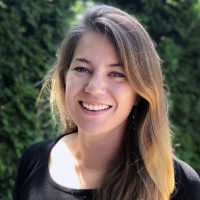
Stephanie Cleland
Stephanie Cleland (MSPH student)
I decided to come to UNC because the Department of Environmental Science and Engineering provides the unique combination of environmental science and public health education, with a wealth of resources, incredible faculty, courses and research focused on solving complex environmental health issues. I wanted to pursue my degree at a school that would train me to use my engineering skills to understand and solve public health challenges and become an effective environmental health researcher, and ESE does just that. Read more/less.
What I like most about my UNC experience is being able to conduct relevant, impactful environmental health research while still taking courses in public health and environmental science to expand and deepen my expertise. I also appreciate the close relationships I have been able to build with faculty. The professors I work closely with are invested in the work I do and have ensured that I am getting the most out of my graduate degree. I have learned an incredible amount during my two years at UNC – more than I thought possible – and believe my time in ESE will prepare me for an effective career in environmental health.
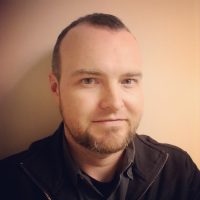
Chris Werner
Chris Werner (’12 MSEE)
I’d say what brought me to UNC was a positive experience at the UNC School of Law a few years prior. I attended law school prior to enrolling in Environmental Sciences and Engineering, so I have a lot of good memories of Chapel Hill. But I can say without hesitation that my memories from ESE stand out for the connections I made with the faculty and my fellow students. Read more/less.
The most important thing I got out of my UNC experience was definitely all of the talented people I met and that I continue to keep in touch with as my career progresses. My experience at UNC prepared me immensely for my current employment at U.S. EPA. My time spent as a student on air quality modeling really helped my current understanding of air pollution chemistry and physics, which feed directly into the air quality policy work I currently do. And it taught me how much work there is still to do in improving public health both at home and abroad.
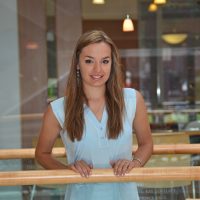
Alma Beciragic
Alma Beciragic (Doctoral student)
I wanted to find a place where I could explore my passions for analytical chemistry, water quality and public health; a place where I could get hands-on training and experience in the laboratory, developing analytical methods and refining my skillsets as a scientist. A place where I would be immersed into a world of my interests—one that I could not have imagined to be as captivating as it is. A place where science does not end with only results, but instead with impact—on the community and the world. Looking back on my time in this program, I can now confidently say that UNC and the Department of Environmental Sciences and Engineering have offered an unparalleled opportunity to check every single one of those criteria. Read more/less.
In the words of Leonardo da Vinci, ‘[w]ater is the driving force of all nature.’ Amongst many other research areas, the Department of Environmental Sciences and Engineering at UNC works to develop methods to better understand and protect our water sources. In light of climate change and projected population increases, such critical research efforts will only become more necessary. The knowledge gained from these endeavors will help safeguard communities around the world.
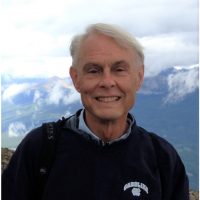
Dr. Leonard Smock
Leonard Smock (’79 PhD)
While completing my MS degree at the University of Illinois around the time of the first Earth Day, I became deeply interested in water resource issues. My adviser, who headed the university’s environmental science program, pointed me to UNC’s Department of Environmental Sciences and Engineering, saying that it had one of the best water resource programs in the country and offered a wide range of directions that my PhD research could take me. That was some of the best advice I have ever received. Read more/less.
The Department of Environmental Sciences and Engineering gave me a wide-ranging foundation on which to build my career and, in some respects, my life. I continually built on the science I learned, especially from my water chemistry class. The department as a whole showed me the importance of translating the basic research I conducted into solutions for the environmental problems facing the broader community. Water quantity and quality issues will only become more and more important with time, defining the world’s social, political and economic well-being. UNC’s environmental sciences and engineering department must continue to be at the head of resolving the issues that will surely arise.
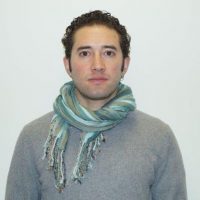
Nikhil Kothegal
Nikhil Kothegal (Doctoral student)
When I applied to the Environmental Sciences and Engineering doctoral program at the UNC Gillings School of Global Public Health, I was seeking a program with a strong research focus on water and environmental health. Gillings appealed to me for its numerous faculty who are leading experts in this area, as well as the renowned Water Institute. I was also excited by the potential to focus on North Carolina-related environmental justice issues around industrial agriculture, which was a shift from the global HIV surveillance work I had been conducting at the Centers for Disease Control and Prevention (CDC). Read more/less.
I am particularly fond of the collaborative environment at UNC. Faculty and students from different fields join together to conduct novel research projects on real health issues confronted by the population of this state. Many students have provided me crucial mentorship and encouragement, from training me in the lab, taking me to do fieldwork and explaining the inner workings of the University.
I am excited to be surrounded by students who are curious, intelligent and willing to challenge systemic inequality and health disparities to improve population health. I know that my hard work and dedication, as well as the knowledge and skills I develop during the PhD program at UNC, will position me to make valuable contributions to the field of public health in the future.
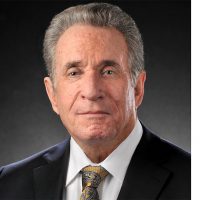
Dr. Stephen Morse
Stephen Morse (’66 MSPH, ‘69 PhD)
After graduating college in February of 1964, I was hoping to start medical school that September. I took a protozoology course taught by Dr. Robert Mah, who later hired me as his teaching assistant. At the end of the spring semester, he told me that he had accepted a position at the School of Public Health at UNC and asked if I would like to go there as his graduate student. I accepted and have never regretted the decision. Read more/less.
After completing my doctoral degree in Environmental Sciences and Engineering at UNC, I accepted a post-doctoral fellowship at the University of Georgia in microbial genetics. From there it was a career in academia with stops at Harvard and Oregon Health Sciences University.
I was always interested in medicine and infectious diseases. My research interests were in the area of sexually transmitted diseases. I was recruited by CDC to be the director of the Sexually Transmitted Diseases Research Program, and during my 32-year career there, I held a number of positions including Chief of the Hepatitis Laboratory, Deputy Director of the Division of AIDS, STDs and Tuberculosis Laboratory Research, Deputy Director of the Bioterrorism Preparedness and Response Program and Associate Director for Environmental Microbiology.
One of the most important things I received from my UNC experience was a broad background in public health, which was essential for my future career at the CDC.
Rosa Cuppari (’20 MS and current doctoral student)
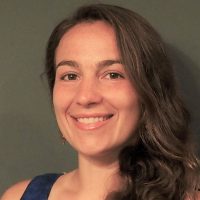
Rosa Cuppari
While the Department of Environmental Sciences and Engineering (ESE) at UNC was not initially on my radar when exploring graduate programs, I discovered that it offered me access to rigorous engineering-related coursework while still giving me the flexibility of other policy-oriented programs I was exploring. I came to ESE with a very limited quantitative background, and in the past two years, I have been happily whipped into statistical and scientific shape. In particular, I have learned how to translate the environmental systems that interest me into computational models and how to evaluate decision making quantitatively. These are applied, practical skills which I hope to use on a regular basis in my career. Most importantly, they provide me with a framework from which to approach assignments and duties in future positions. Read more/less.
My goal is to use the skills and knowledge I’ve developed to work on water-food-energy nexus issues in some international capacity. Ideally, I’d like to be part of the U.S. Department of State, helping manage transboundary water resources around the world.
It is a rare thing to find a department that can strike a balance between flexibility, rigor and academic diversity. At ESE, we have air quality modelers, membrane-technology experts, microbiologists, power system modelers and more. I don’t think I have ever seen a department of this size with such a variety of research. It caters to interdisciplinary research and stimulates graduate students to think of ways their work connects to the work of others. ESE has a special niche. It deserves 100 more years!
Don Lauria (’70 PhD and professor emeritus)
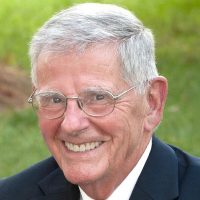
Dr. Don Lauria
UNC and ESE are central to my career, my life, who I am and what I do. Dan Okun, former ESE department chair, called me in 1964 when I was working with a firm of consulting engineers in Syracuse, N.Y. to ask if I was interested in a teaching position in ESE. The students were mid-career engineers from developing countries wanting to learn about community water supply-sanitation planning and design. I said yes. Read more/less.
Once I started teaching these engineers, it opened a whole new world of opportunities to work on the water and sanitation problems in developing countries. The technical background, skills, contacts and opportunities to work with and assist very poor people across the globe – these were some of the most important things that came from my UNC experience.
The purpose of life, as I see it, is self-transcendence: being more today than who we were yesterday. We transcend ourselves by what we do, not by our thinking or understanding or decisions or intelligence. Understanding underpins our decisions, and decisions, in turn, underpin our doing. This understanding, the “knowledge” business of universities, is a lower rung on the ladder of self-transcendence. Belief is a type of understanding that accepts as true existing knowledge that was developed by someone else. ESE’s strength is in the emphasis it puts on students becoming inner-directed to develop their own knowledge so they can best serve society, as opposed to the secondhand belief-knowledge of others that often characterizes academic departments.
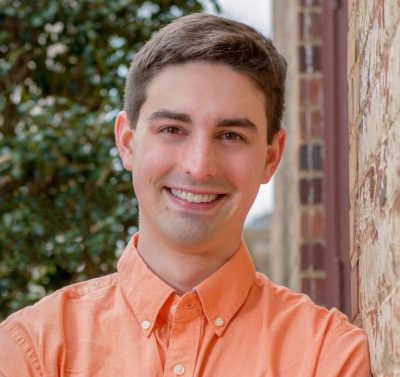
David Gorelick
David Gorelick (doctoral student)
I came to UNC as an undergraduate in 2011. Truthfully, I was dead set on leaving North Carolina after high school, but after visiting Chapel Hill and meeting with Greg Gangi in the Environment and Ecology Program, I felt that this would be a good place for me! Almost nine years and nearly three UNC degrees later, it was obviously the right choice. Read more/less.
What I appreciate most about UNC is the breadth of topics courses available to us, especially as graduate students. Being exposed to that range of subjects has already had a beneficial impact on my research and pushed me to explore different career options than I thought I would when I enrolled.
In the future, I hope to be doing work in natural resources that influences policy, either directly through legislation, applied research or teaching.
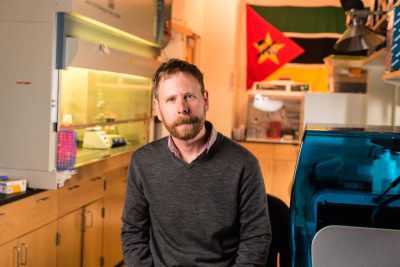
Dr. Joe Brown
Joe Brown (’07 PhD and current faculty)
The friendly, collaborative, positive atmosphere set UNC apart from other programs I considered at Cornell, Yale, Columbia, UT Austin, and UC Berkeley. I wanted to do great work in a positive environment of collaborative excellence. Drs. Mark Sobsey and Greg Characklis were two faculty influences, and the student services office representatives – including Jack Whaley and CL Lassiter – both played important roles in presenting a friendly, welcoming atmosphere. Other graduate students also helped me feel welcome. Read more/less.
I never deviated from the trajectory in academia that I established at UNC. I learned what academic collaboration looks like and the importance of having a rich scholarly community to support the development of great scientists. Now I am on the faculty in ESE and conducting research at the intersection of engineering and public health.
The training I received at UNC was absolutely essential to all of the work I do now in my research, teaching and service. It exposed me to an atmosphere of excellence and a deep commitment for improving human well-being. The program is unique in its scope and is globally recognized for sustaining excellent research and training opportunities for environmental scientists and engineers who are working on some of the most critical problems in public health.
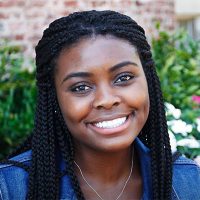
Jeliyah Clark
Jeliyah Clark (doctoral student)
I’ve had the pleasure of working in the lab of Dr. Rebecca Fry throughout my undergraduate and graduate research experiences in the Department of Environmental Science and Engineering (ESE). These experiences have contributed to both my personal and professional development. As her student, I’ve been afforded many opportunities that I’m not sure I would have had at another research institution. Read more/less.
One of my favorite experiences thus far has been helping to establish the Undergraduate Research Opportunities Program (UROP), which aims to increase the number of underrepresented minorities pursuing research in the environmental health sciences. In this role, and through my personal experiences in graduate school, I have been reminded of the value of and need for diversity and inclusion in the academy.
I’m not sure what I would like to be doing in the next ten years, but I’m confident that my experiences in ESE have equipped me for success. Regardless of what I pursue, I will continue to be a champion for increasing the representation and support of underrepresented minorities in science.
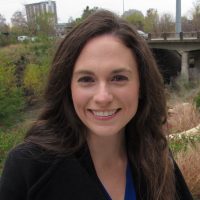
Dr. Julia Rager
Julia Rager (’10 MSEE, ’15 PhD)
When I was obtaining my undergraduate degree in Civil and Environmental Engineering at the University of Texas, I found my interests gravitating towards the biological and genetic aspects that can influence engineering decisions. A professor that was teaching me at the time about water treatment processes, Dr. Desmond Lawler, was an alumnus of ESE. Dr. Lawler recognized my passion for acting as a linker between engineering and human health and encouraged me to apply to this department, as it represents a unique interdisciplinary program that leverages engineering concepts to address public health issues. Read more/less.
My experience at UNC provided unique opportunities to conduct cutting-edge research that resulted in real-world environmental action and public health policy. With this translational experience, I found myself marketable to a variety of career opportunities, including those available through the U.S. Environmental Protection Agency, the chemical industry and academia.
It is easy to see how public health is reliant upon the health of the environment. While there are some success stories, where engineering action has aided in the reduction of exposure to harmful chemicals, it is clear that environmental issues continue to increase alongside a growing population and changing environment worldwide. It is imperative that we continue to identify which environmental problems are the greatest contributors to the global burden of disease and engineer solutions to address these problems.
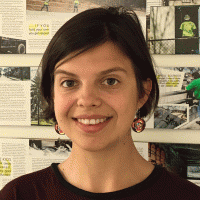
Corinne Wiesner
Corinne Wiesner (doctoral student)
My decision to go to UNC was a result of my experience in AmeriCorps Community HealthCorps and because of Dr. Marc Serre, my advisor. With AmeriCorps, I experienced the richness of the public health field in serving in the environmental health department of Sixteenth Street Community Health Centers on the southside of Milwaukee. The scientific input was so fascinating that I applied to programs where I would research topics that interested me from these meetings. Read more/less.
When I spoke to Dr. Serre on the phone, he was encouraging and excited about my questions and thoughts about the project I would be working on – spatial modeling to understand the role of concentrated animal feeding operations on microbial pollution. He and my co-advisor, Jill Stewart, have provided mentorship that is incomparable to what I would have received in another graduate program.
The research coming from the Department of Environmental Sciences and Engineering (ESE) at UNC is incredibly novel, impactful and interesting. Given the critical nature of our research, I really like that ESE has an interest in putting our research and education on sustainability and climate into practice. Barbara Turpin and other leaders have set out to consider how our school can exemplify sustainability, climate research, education and action. It says a lot about their genuine passion for the environment and care for the future to take their valuable time to discuss and push for actual changes.
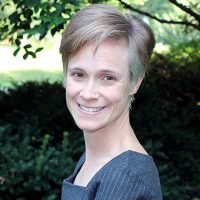
Dr. Leigh-Anne Krometis
Leigh-Anne Krometis (’09 PhD)
As a young student, I found myself frustrated at my inability to communicate to others the importance of preserving environmental quality. The explicit connection between engineering and public health offered by UNC was incredibly unique and exactly what I hoped to study.
I focused my graduate research on the fate and transport of waterborne pathogens in urban stormwaters, and I continue to examine microbial systems in the environment today. Early in my career as faculty, I also began working on issues related to safe drinking water and effective sanitation in Appalachia. The laboratory skills in contaminant detection and public health risk education that I received in ESE made this both a natural outgrowth of my research interests and an area where I felt I could effectively contribute. Read more/less.
Dr. Greg Characklis, my doctoral advisor, told me that, as an academic, your primary “products” that you should spend the most time developing and promoting are your students. This attitude certainly defined my time in ESE and is a mantra I still live by as a professor at Virginia Tech. A single researcher – even a brilliant one – can only go so far and affect so much change. We amplify our impact most by inspiring and encouraging students to shine and excel.
Environmental equity demands a simultaneous focus on the impacts of humans on the environment and the impacts of our environmental choices on human health, particularly vulnerable communities. ESE’s strong background in engineering, policy, toxicology and public health continues to grow students who are able to meet these challenges.
Clara Eichler (Doctoral Student)
I decided to come to UNC because I was already familiar with the research that was happening here, which intersected with the research that I was planning to do. I also think it is great that the Department of Environmental Sciences and Engineering (ESE) is part of a public health school instead of an engineering school. I am an engineer by training, and I thought that the public health perspective would be highly beneficial for my research. Read more/less.
Environmental problems won’t go away. We will continue to find problems that need solving, but it is just as important to inform stakeholders in policy making and industry so that many mistakes are not being made in the first place. The ESE department is needed to teach and to perform research to address existing and future environmental problems.
I started at UNC only a few months before the COVID-19 pandemic forced everyone to stay at home. I really like the people in my research group and enjoy working with them. That has helped me to stay motivated during these strange times. I also like and am impressed by how everyone at UNC, and especially at the Gillings School, is trying to make the best of the situation while promoting public health.
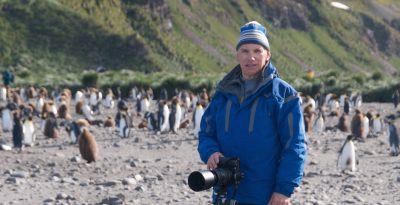
Grover Wrenn
Grover Wrenn (’67 MSPH)
I was initially intent on pursuing a doctoral degree in chemistry, but my undergraduate studies in liberal arts were transformative and caused me to look for a calling where I could make a big difference in the world. While working a summer internship in environmental health in Greensboro, I visited UNC to learn of opportunities for graduate school. There I met with the inspiring Dr. Lyman Ripperton from the Department of Environmental Sciences and Engineering (ESE), who had come to North Carolina to teach and conduct research on smog formation and the resulting health effects. Read more/less.
After completing my graduate degree in 1967, I worked for Boeing in the Saturn V Apollo space program and then for IBM. My interest in industry-wide occupational health studies led me back to ESE as a research associate to participate in these studies and lead a team of industrial hygienists in conducting inspections of tire manufacturing and plastics plants to assess worker exposures to toxic substances and other occupational health risks.
My work in that field eventually led me to become Director of Health Standards for the Occupational Safety and Health Administration (OSHA). My graduate training at the School of Public Health and my work in the occupational health study group prepared me for the OSHA job. I was the right person with the right skills at the right time largely because of my UNC experience.
In the time after my work with OSHA, I have become a successful entrepreneur and senior executive, amassing 40 years’ experience in life sciences, environmental services and health care services. I am grateful for my experience at UNC. It helped make me a more capable, curious and caring person and provided the foundation for my career.
Read the feature on Grover Wrenn from Carolina Public Health Magazine.

Lauren Eaves
Lauren Eaves (PhD student)
I came to UNC as an undergraduate in 2014, moving across the pond from London. Staying for graduate school was not on my radar until I took Dr. Rebecca Fry’s “Systems Biology in Environmental Health” class. It connected the dots for me and opened the door into the world of using rigorous, exciting science to improve public health. After that, I started to work in the Fry lab during my last year of undergraduate, and then I didn’t leave! Read more/less.
I’m passionate about environmental health during pregnancy and early childhood. Throughout graduate school, I have worked as a doula, supporting mothers through labor and delivery at UNC Hospitals. At the same time, my research focuses on exposure to metal mixtures via private well water in North Carolina and risk of preterm birth. I see my research and doula work as linked: without the doula work, I don’t truly interact with folks who I am hoping to serve through research. Without the research and scientific training, my doula work wouldn’t be informed by critical review of current evidence.
One of the aspects that I like the most about my UNC experience is the interdisciplinary training and the wide breadth of academic fields that intersect within the Department of Environmental Sciences and Engineering (ESE). Through ESE, I have taken classes ranging from environmental chemistry processes to sanitation for development, systems biology to global perspectives on environmental inequities. I’ve also been able to learn from collaboration with other departments, receiving training from the biostatistics and epidemiology departments, rounding out what I hope is a truly diverse curriculum of doctoral training.
Being a part of a community – our department – in which I know every person cares and is spending their time and talent on addressing, and perhaps even fixing, some of the greatest environmental problems gives me hope.
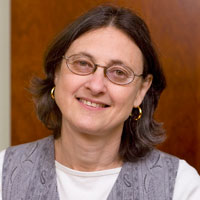
Dr. Marjorie Aelion
Marjorie Aelion (’88 PhD)
Since I took my first environmental course in the 10th grade, I was hooked on environmental sciences and engineering. My Massachusetts Institute of Technology professor suggested I apply to UNC, although I wanted to go to a university on the west coast that had an excellent academic program. After what I saw and heard on my visit to Carolina, I knew it was the right choice for me based on research, academics and the culture of the department. Read more/less.
The opportunity to meet so many great graduate students who were supportive of one-another made my experience in the Department of Environmental Sciences and Engineering more meaningful than I expected. UNC combined excellent academics and research with a student-oriented and student-friendly culture. Creating this same type of environment should be a goal of all departments and universities.
My first environmental job was as a seasonal national park service ranger. My first job after completing my PhD was with the US Geological Survey, but academics kept calling. A faculty position allowed me to do the environmental research that I loved, work with students, and be part of a university environment.
As my UNC professor often queried, “and they pay me to do this?”
ESE has important contributions to make outside and inside the institution. Outside, we read about its impact in local, regional national and global communities, which will undoubtedly continue for hundreds of years. Inside, the department and its faculty influence the lives of multitudes of students who have had the opportunity to be part of the environmental sciences and engineering community.
We Want to Hear from You
Please send us your stories and more by completing our Centennial Survey.
Submit your ESE photos here.
Questions? Email ESE_Centennial@unc.edu.
